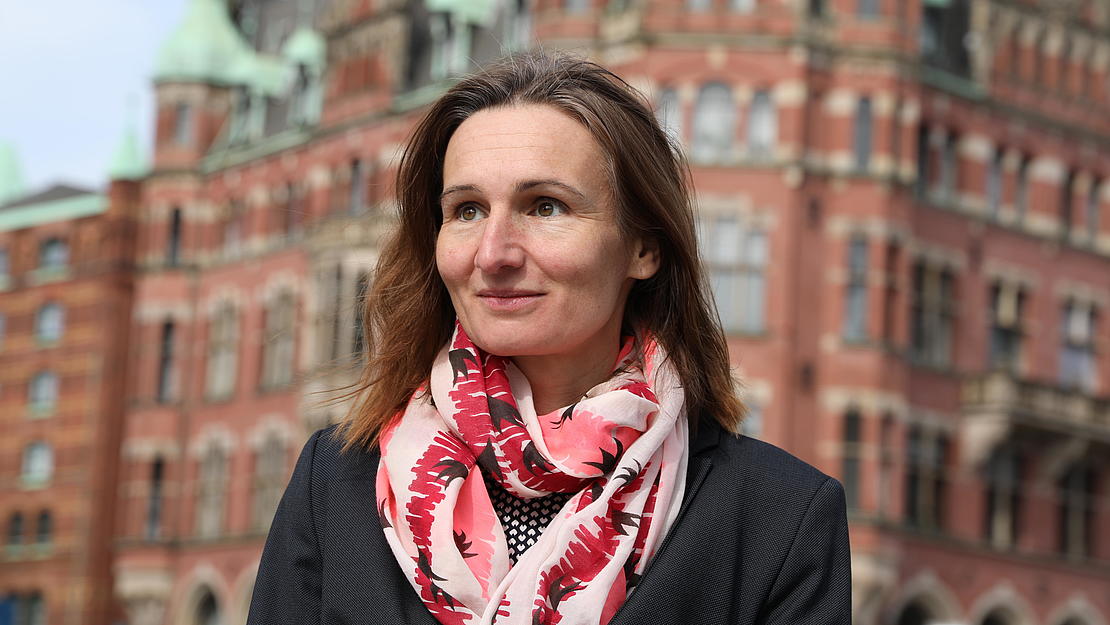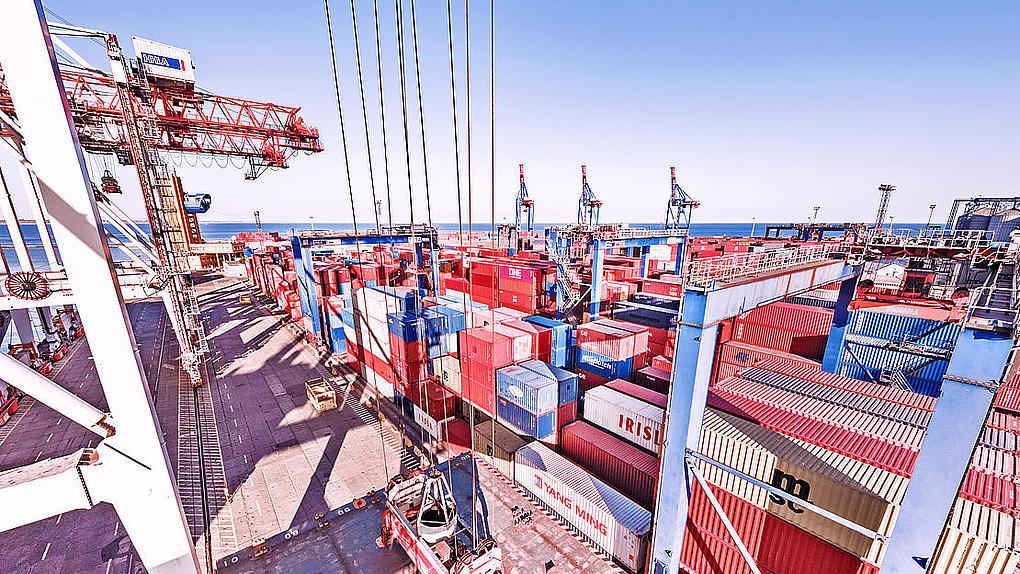
When Russia marched into Ukraine on 24 February 2022, Bolliger-Fussner cried. Though the tears were an outlet for the anger that had bottled up inside her, she soon found a much better way to use her energy.
At HHLA, where she has worked as a Human Resources Officer since 2012, support initiatives quickly sprang up – especially via the intranet – to help people affected by Russia’s attack. HHLA has a special relationship with Ukraine. The company has operated a terminal facility in the port of Odessa since 2005. The 480 employees who work there were now facing an uncertain future as a result of the aggression. “Together with our colleagues from Odessa” was the motto of a donation drive initiated by HHLA employees in Hamburg.
By sending an email to the HR department, every employee could make a non-bureaucratic donation which was deducted from their salary. Nearly € 65,000 was collected very quickly. At the behest of the Executive Board, an aid fund of one million euros was also set up.

Ukraine aid fund: HHLA donates one million euros
More and more people are suffering hardship as a result of the war in Ukraine. Hamburger Hafen und Logistik AG (HHLA) is therefore setting up an aid fund worth one million euros.
But monetary donations weren’t enough for the HHLA employees: they were deeply moved by the images of people fleeing westward from the war zone with few belongings. When it became clear that colleagues and their relatives in Odessa also wanted to leave, they sprang into action – as did Bolliger-Fussner. Due to her language abilities – she speaks fluent Polish, German, English and Russian – she quickly became a key member of HHLA’s “Help for Odessa” crisis committee. “It was a fantastic team. We really worked a lot – some of us even used our holidays,” she says. “The importance of the initiative and the team’s tangible commitment motivated us all. Much was uncertain, but one thing was clear: we were going to help.”
Bolliger-Fussner headed the crisis committee’s Hamburg team. Her primary aim was to organise accommodation for refugees and to recruit additional helpers and interpreters. Other team members planned the bus routes from Romania, where refugees were waiting to travel onward to Germany. “Many people from the HHLA Group offered to provide accommodation and other kinds of help,” Bolliger-Fussner says.
Around 180 volunteers, including 30 Russian-speaking colleagues, were involved in the initiative. When the first buses arrived on 9 March and opened their doors in front of HHLA’s headquarters on St. Annen-Platz, it was a very special moment. “Reaching out our hands to these people after their long journey – showing them we were here for them – was only human,” remembers Bolliger-Fussner.
As of mid-April, 53 families from the Odessa region have been brought to Hamburg by way of Romania. 170 people have been temporarily housed with guest families and in hotels. More than 100 people are being provided for in a hotel in the Romanian city of Constanța.
The volunteers found their involvement fulfilling despite the additional work. “Warm relationships have arisen between colleagues who didn’t necessarily know each other well before,” Bolliger-Fussner says, adding that the Executive Board made a great deal possible in a short period of time. “It’s a wonderful feeling to be part of this supportive community!”
Published 05/2022